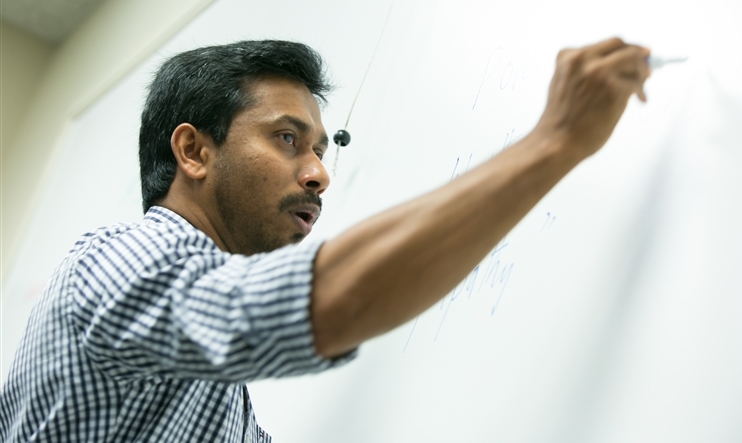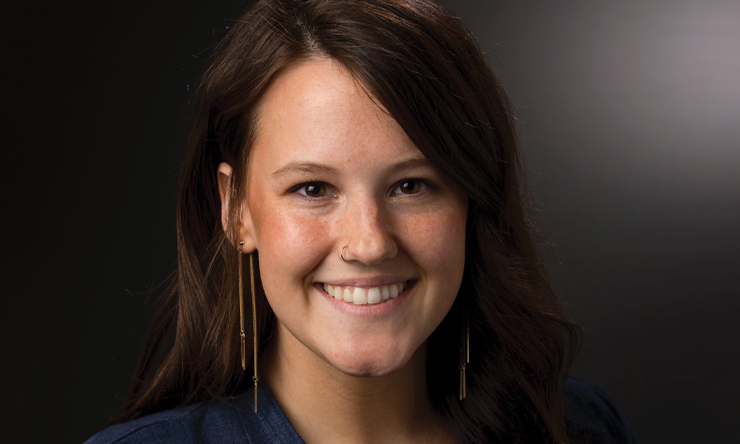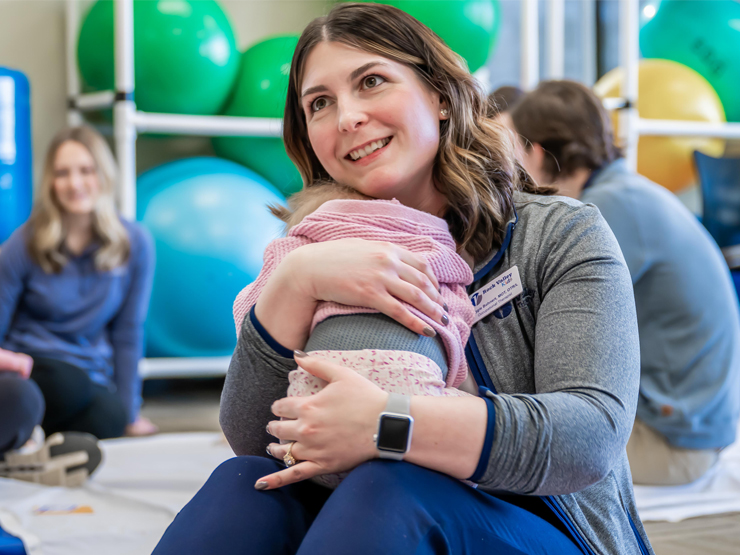Faculty Profile
St. Ambrose School of Social Work Associate Professor Johny Augustine, PhD, said he is not an expert when it comes to natural disasters and recovery.
"The local communities, the people who survive, they are the experts," he said.
Augustine has lived among such experts. He has documented their experiences, recovery and resiliency and shared that information with the world. His research, journal articles, presentations, and consulting work for international aid organizations have helped countless social workers, medical professionals and officials across the globe understand how they can help individuals, families and communities - after disaster strikes, and, most importantly, before.
Augustine's passion focuses on identifying and addressing the root cause of the disproportionate impact natural disasters have on children, women, older adults and the poor.
Addressing that root cause is why Augustine teaches social policy.
The number of natural disasters has steadily increased since the 1970s, with the average annual economic impact of such disasters having risen to approximately $125 billion. Augustine said the cost, and loss of life, could be so much less if programs, policies and actions addressed the issues that make people vulnerable to hazards such as poverty, income inequality, lack of sustainable livelihood opportunities and climate change.
"If we could address the underlying conditions that make people vulnerable to hazards we could solve this problem at its best," he said. "The disaster preparedness plans developed by local communities and nation-states must include policy prescriptions that address these issues and make efforts to integrate such risk reduction measures in their larger planning and development efforts."
Augustine first witnessed the impact of a massive disaster first-hand after the Indian Ocean earthquake hit on Dec. 26, 2004, and triggered a series of tsunamis that killed 250,000 people in 14 countries. Indonesia was the hardest hit, followed by Sri Lanka, India, and Thailand.
Augustine was pursuing his doctoral degree at the University of Denver at the time, and, in response, he chose to focus his dissertation on tsunami survivors. He went to Kerala, India - his home state - and lived and worked with survivors for almost a year. He wanted to understand how they experienced and recovered from the disaster, which killed 131 Kerala residents.
Augustine has continued his work and research into disaster recovery. As a volunteer consultant for ActionAid, he assisted the organization in developing a program logic model for evaluating a disaster response and mitigation program in Somaliland. He also evaluated and offered input for a community-based disaster preparedness program in Afghanistan. He collaborated with the Nepal School of Social Work in creating a short video on social work response to the 2015 Nepal earthquake.
Augustine is a sought-after speaker and in 2016 he moderated a panel discussion for a United Nations committee seeking information about social work within post-disaster recovery and relief.
He chairs a committee on Global Social Issues for the Council on Social Work Education, and currently he is working with colleagues on a grant for research that could lead to the inclusion of disaster response, recovery and responsibility into the U.S. social work curriculum.
At St. Ambrose, Augustine strives to expose his students to the kinds of social work practiced around the world. Every other year, Augustine leads a Master of Social Work winterim study abroad experience in India. During the trip, St. Ambrose students spend a lot of time with graduate-level social work students at top universities in India. As peers, they share their perspective, practice and field experiences.
"I call it a cross-cultural information exchange," Augustine said. "We can learn from these students and teach them as well."
— By Dawn Neuses '94
'If we could address the underlying conditions that make people vulnerable to hazards we could solve this problem at its best.'
Johny Augustine
The number of natural disasters has steadily increased since the 1970s, with the average annual economic impact of such disasters having risen to approximately $125 billion. Augustine said the cost, and loss of life, could be so much less if programs, policies and actions addressed the issues that make people vulnerable to hazards such as poverty, income inequality, lack of sustainable livelihood opportunities and climate change.
"If we could address the underlying conditions that make people vulnerable to hazards we could solve this problem at its best," he said. "The disaster preparedness plans developed by local communities and nation-states must include policy prescriptions that address these issues and make efforts to integrate such risk reduction measures in their larger planning and development efforts."
Augustine first witnessed the impact of a massive disaster first-hand after the Indian Ocean earthquake hit on Dec. 26, 2004, and triggered a series of tsunamis that killed 250,000 people in 14 countries. Indonesia was the hardest hit, followed by Sri Lanka, India, and Thailand.
Augustine was pursuing his doctoral degree at the University of Denver at the time, and, in response, he chose to focus his dissertation on tsunami survivors. He went to Kerala, India - his home state - and lived and worked with survivors for almost a year. He wanted to understand how they experienced and recovered from the disaster, which killed 131 Kerala residents.
Augustine has continued his work and research into disaster recovery. As a volunteer consultant for ActionAid, he assisted the organization in developing a program logic model for evaluating a disaster response and mitigation program in Somaliland. He also evaluated and offered input for a community-based disaster preparedness program in Afghanistan. He collaborated with the Nepal School of Social Work in creating a short video on social work response to the 2015 Nepal earthquake.
Augustine is a sought-after speaker and in 2016 he moderated a panel discussion for a United Nations committee seeking information about social work within post-disaster recovery and relief.
He chairs a committee on Global Social Issues for the Council on Social Work Education, and currently he is working with colleagues on a grant for research that could lead to the inclusion of disaster response, recovery and responsibility into the U.S. social work curriculum.
At St. Ambrose, Augustine strives to expose his students to the kinds of social work practiced around the world. Every other year, Augustine leads a Master of Social Work winterim study abroad experience in India. During the trip, St. Ambrose students spend a lot of time with graduate-level social work students at top universities in India. As peers, they share their perspective, practice and field experiences.
"I call it a cross-cultural information exchange," Augustine said. "We can learn from these students and teach them as well."
— By Dawn Neuses '94
Share This Story




